|
This poem was written as a post originally in my Verse for Thursday feature back in March. It was written for Autism Awareness Week but I think it would be a nice time to share it again here after all raising awareness isn't just for one week, it is something we should do every day......
What does Autism mean to you? Are you aware or is it all quite new? It can seem really complicated and making some people feel isolated But do not fear as there is help quite near Groups where you can drink and have a chat and pick up the odd interesting fact As a community it's good to look out for each other especially if you're on the spectrum, a relative, friend, father or mother The professionals, they need someone to lean on too It's almost like one big Autism stew Yes, a hot pot of boiling stress sometimes causing a bit of a mess But the more people we make aware then the problems we may share So please pass on the word about Autism this week and feel free to go out there and speak Don't be afraid to ask how and why Shrug off that curiosity, please don't be shy ❋❋❋ Thank you for reading. Please join me again tomorrow for Free From Friday. For now though.... Take care xxx
0 Comments
A Meltdown refers to a sudden loss of control over one's feelings or behaviour. This can be displayed in many different ways such as anger, frustration, anxiety, self harming, tears and even silence.
When I first became aware and started learning more about Autism I thought a meltdown was a massive release of anger and aggression and that was it, for a lot of people with Autism their meltdown does take that form. Someone may physically damage the environment around them in some way or cause physical harm to themselves so in these cases it is important to know what to do when it gets to this situation or try our hardest to prevent a situation getting to this stage. Not always that easy though eh? I got to thinking about meltdowns a lot this week and thought a lot about my son's meltdowns. He tends to do the opposite of the above and hold the frustration in, this will eventually display as emotional outburst of tears and if pushed to the limit he will hit himself but that's the worse case scenario. Holding a lot of information in which he can't process properly leads to a lot of anxiety and this anxiety will start to show in him repeating a lot of verbal information over and over, this is his calming method, I know he's trying to get back to a level where he feels comfortable. We have built knowledge together as a family over many years and still we don't always get it right. He doesn't know how to process some information which is directed at him in some ways so we can never predict what his reaction will be. I know I can't raise my voice too much with him as this raises his anxiety, that doesn't mean he never gets told off but it means we go about it in a different way. My youngest son was always dismayed at the way his brother never got told off until we explained why. He gets it now. In my experience I wondered how I experienced my own meltdowns and when I look at my behaviour, I'm very similar to my son as I burst into tears. This my release of frustration. I find anger and aggression frightening so it's probably a good job my son is like he is. I cannot be told off either, if anyone confronts me or I get to a stage where I can't quite work my reaction out it usually comes with a good cry. This was not a good situation when my brain got overloaded at college a few years ago and my tutors response was 'you need to pull yourself together', well yes maybe I did but I know that I wouldn't say that to anyone I know who was in a similar situation. At the time I was in the middle of a bout of depression too which was made clear when I started studying so I'm hoping along the line a bit of compassion may have been learnt since then. Do get in touch with someone to help you if you do struggle with behaviour in any way. Everyones situation is different but there are techniques to help. As a local branch of the National Autistic Society in Derby we offer talks and seminars now and again regarding challenging behaviour and how to cope with meltdowns so check our Facebook page for future meetings www.facebook.com/NASDerbyBranch/ Here is some great information from the National Autistic Society website about meltdowns www.autism.org.uk/about/behaviour/meltdowns.aspx so I hope that helps a little. We are all still learning more and more about emotions within the world of Autism and how they manifest and also making the people around us more aware how to help people if they realise someone is struggling with an overload of feelings. It does happen in so many different ways so we just need to be aware of this. Please feel free to leave any comments below and let me know how you cope. Thank you for reading today and if you fancy joining me for some telly talk tomorrow it's Pass the Remote Sunday so come along! Take care for now....... I attended a seminar this week about Managing Anger with regard to those on the spectrum and how to support families too. It was really interesting and there were some very useful tips for handling certain behaviour, coping with anxiety and the dreaded melt downs.
I must admit that my son doesn't lash out and show his anger too much, he tends to do the opposite and when his anxiety hit's a high he keeps it in so much it comes out in a lot of echolalia and repeated behaviour. When we visited the dentist the other week I noticed that he had to have a sleep afterwards. The sensory implications of having a filling would have been massive and he coped, but exhausted himself. Although anger can be very visible there are are some who do keep everything in which sometimes can have severe consequences too. My son doesn't always recognise his feelings and masks them quite well. The seminar did cover this as well which was good. I did contemplate whether this would be relevant to our situation as a family but yes it did. Bear that in mind if you get a chance to attend one of these seminars as it does cover coping mechanisms to help with anxiety, therefore helping to reduce the chance of getting to the meltdown stage, if that is at all possible. The course explains what anger is, how to use the low arousal approach, coping with meltdowns and how to help your child manage their feelings. If you cannot get to a seminar the booklet that accompanies it is available on the NAS website, just follow this link: www.autism.org.uk/products/core-nas-publications/autism-seminars-for-families-managing-anger-seminar-booklet.aspx It only costs £5 and has quite a bit of information in there which you can keep referring to when needed. Always find support though if you need to talk to someone. There are many groups available which are great for families to get together and share experiences and information. I would just like to thank the NAS for allowing this seminar to be given out to us as a branch and we hope it helped everyone who attended. These kind of courses are vital for people to grab solutions and ideas, not everything works for everyone in the same way but a lot of strategies can be adapted to help. I hope this was useful and thank you so much for reading. I will be back tomorrow for 'Pass the Remote' but for now take care. This week shops have been taking part in the Autism Hour which was set up by the National Autistic Society. This is an hour where lights are dimmed, the music is turned down or switched off, information is shared and staff on on hand to help customers understand all about Autism.
Going to a shopping centre can be an ordeal for someone with Autism, it's loud, busy and the lighting can be too bright in some shops. Those people who are on the spectrum will have different opinions about this as it affects people in different ways. For some, no amount of light dimming or quietness will make much difference, there will be other aspects of the shopping experience that will make it difficult for them them to take part. In a survey 64% of people with autism and their families would rather not go out shopping because of the various factors that make it difficult. A lot of these result in a massive sensory overload. We have seen how this can affect someone in the video the NAS put out a while ago involving Alex, a young boy with Autism and how he would feel as he walked around a shopping centre. I know I don't like big busy shopping centres but for me it's the people, there are too many and I don't like having to dodge out the way and weave in and out, it's too much. I only like to go shopping if I know what I am going for, get it and then come home or I home shop most of the time. Internet shopping has become a delight for those who find it hard to shop. I particularly like online shopping at Christmas because I just can't stand it becoming even more busier, there's no where to park, it's cold and basically Christmas is for staying at home with a hot chocolate and a good movie and I don't have a diagnosis. My son is the same though, he knows where he wants to go, knows what he wants then that's it, job done, lets go now. If we stay too long he gets very anxious. There is still time to shop within the Autism Hour this weekend. There are still shops taking part on Sunday. If you need to find out which shops are taking part, head over to the NAS website at www.autism.org.uk If you are in the Derby area here is a list of some of the Derby stores taking part: Clarks - Everyday 2nd-8th October during their first hour of opening Toys R Us Wyvern Way- 8th October 10am Intu Derby- 2nd October 10am Sainsbury’s- 2nd October 10am Superdrug Westfield Centre- 8th October 11am Lloyds Bank, Iron Gate, St Peters Street- 2nd October 10am Supergrug Corn Market- 8th October 11am Virgin Money, Corn Market 2nd October 9am Halifax, East Street- 2nd October 10am Pets at Home, Kingsway - 8th October 9.30am Pets at Home, Meteor- 8th October 9.30am Even though it is just an hour it is raising that awareness which is important. For a lot of people it's not an enjoyable experience whether you have Autism or not, it's a chore but if we can relieve a bit of stress and anxiety for those who struggle then it has to be a good thing. I hope it continues and it's something that becomes more permanent especially if it helps. I'd love to know whether anyone has been to shop in one of these hours and have you found it helpful? Is it a waste of time and not helped at all? Are the day/times suitable? Let me know by leaving a comment here or on my Facebook page. The NAS are bound to want a bit of feedback so lets let them know. Thank you for reading today, please pop back tomorrow for my chit chat about TV which is called 'Pass the Remote'. Until then take care........ I thought I would continue from last weeks post regarding Disability Living Allowance for children or DLA and just explain what happens when your child reaches the age of 16. It's ok, not to scary but it does involve re applying for PIP as DLA is not automatically transferred over. This can cause a bit of stress to people leaving them feeling very uncertain about what happens in the future for their young person.
PIP is a benefit for people with disabilities and is available to that person whether in work or education. It is not means tested and it can be awarded to those between the ages of 16 and 64 even if they are in receipt of other benefits so it doesn't matter how much savings you have it is there to help with care and and to get around. The application process starts with a brief phone call in which you talk to someone about basic details and if the person with the disability requires an appointee. This person will handle any finances and tasks that the person with the disability is unable to do. After that a paper form will be sent out which needs to be completed and then if necessary there may be a request to attend a face to face assessment. The decision will be made after all the information has been collected and although there have been delays in applications the DWP do intend letting you know their decision within three months. It is very similar to DLA when applying, there is a care component and a mobility so there are two different payments as with DLA. The form requests information regarding how much help is required with medication, feeding and drinking, washing, dressing, toileting, going out, communication, interaction with people, travel and managing finances. I thought it was a much easier form to film in compared to the DLA. It does take into consideration a wide range of disabilities including the difficulties people have on the autism spectrum. There is a really good fact sheet available on the NAS website with lots of information about PIP, an easy ready guide which the government has produced, and details how to claim for it too. Just follow the link here: www.autism.org.uk/pip It can seem like a minefield sometimes and I know this from experience. Forms are not my favourite thing neither is talking on the phone sometimes but I can honestly say these people are there to help. There are some people who haven't had great experience with this process but all I can suggest is getting as much help and advice as possible. Talk to other parents, find a support group or contact your local authority as there are people who can help. Please don't worry and try to cope on your own. If you do struggle, contact your local NAS branch (details available at www.autism.org.uk). If you are in the Derby area contact the Derby Branch through Facebook or by email at [email protected] I hope this helps, thank you for reading and I will be back for Pass the Remote tomorrow, until then take care. I know there may be many people out there who are aware of DLA but I thought I would just write a small piece about it for those who have not heard about it. It may be that you have just received a diagnosis and are at the stage where you want to know 'what to do next'.
Disability Living Allowance gives financial help to those who need extra care or help with mobility. You do not need a diagnosis of Autism to be considered for this help nor is it means tested, it focuses on how much care your child needs and whether they are able to get around easily. There are two parts to a claim, a care component and mobility. You may claim for either or both. I would suggest putting a claim in for both as a lot of behaviour in relation to Autism such as lack of road safety, sensory issues and anxiety can be factors for a consideration of low rate mobility. The care component looks at a need for the amount of attention and supervision needed over a 24 hour period. Don't be too put off by the form as it is quite lengthly and it does ask you to record tasks associated with eating, sleeping drinking, washing etc. This can seem like your writing a life story, it may seem very negative and depressing so I would recommend filling the form in stages, little at a time and take a break. There is help available if you are finding it difficult to fill in the form. The weekly rates for the care component are: lowest: £22 middle £55.65 highest £83.10 and for mobility lower: £22 higher £58 DLA is usually paid every 4 weeks into a bank account of your choice, so it could be worth applying for to give you extra financial help if needed. If you would like more information you can go to the main government website at: www.gov.uk/disability-living-allowance-children This is for new claims regarding children up to 16 years of age. For new claims over the age of 16 you would apply for PIP which is Personal Independent Payment but I will cover that in a future post. For Autism specific information about DLA go to the National Autistic Society website at: www.autism.org.uk/dla For those who are in the Derby area and would like to know more about DLA for children the NAS Derby and District Branch have a speaker coming to talk about this very subject. Jane Owen-Pam is a Welfare Rights Advisor and is coming along to talk to the branch. It will take place at The Farmhouse, 60 Ashbourne Road, Derby. DE22 4LY on Tuesday 10th October 7pm - 9pm. To book a place please send an email to: [email protected] I hope that helps a little, please do try and claim as you may be entitled. In the possibility you get your claim refused you can appeal to the decision. There is support regarding this available too and I would advise to keep going, don't give up! Thanks for reading today, join me again tomorrow for 'Pass the Remote'. Take care for now......... Well how about your local branch of the National Autistic Society? There are many dotted all around the UK and they are organised in different ways depending on the volunteers who run them. Some concentrate on fundraising, some are very proactive with running groups and activities and others concentrate on supporting families with support groups and advice.
At the Derby and District Branch we organise many support groups in the area which are open to anyone wanting to know more about Autism. This maybe because you are a parent with a child who is diagnosed with Autism, someone who is on the spectrum yourself, you may be a teacher or teaching assistant or someone who is studying at university and collating research for your work, support works in all different ways. We, as a committee are very small in numbers but have experience of Autism. Some of us are parents ourselves with children or young adults on the spectrum or work in this field too. Our support groups are friendly, relaxed with no pressure to say anything if you don't want to, you can simply just come along, have a brew and a biscuit and just listen to others. Personally for me I don't think there is anything as good as mixing with other parents, it's where you get great first hand advice because these are real people living and breathing the Autism world. We've all coped, not coped, had success, made mistakes and some us have still got lots and lots to learn. You get to make new friends too which has been great for me as a single parent, it's been therapy at some points in life. We work on the aspect of giving people a place to chat and signpost those to vital information they may need, if we don't have the answers for you straightaway we will find help for you so bear with us we will find a solution somewhere for you. As most of our groups are based in schools we are now back in full flow after the summer holidays and have an up to date list of new groups with some interesting speakers coming along to talk to you. If you would like to book a place on one of our talks just send an email to [email protected] otherwise just come along. For more information on our branch or if you would like to join us as a volunteer we do have a Facebook page: www.facebook.com/NASDerbyBranch/ Here is a list of our meetings up until the end of the year drive.google.com/file/d/0ByA4tntibHH7c20tNGtobDRyVnM/view and if you would like to find a branch near you, you can search for one on the National Autistic Society website at: www.autism.org.uk I know sometimes for some it is hard to reach out for help and support. Some people find it hard to do and try so hard to cope until things become so desperate you can't cope anymore. We know how that feels and have all been there at some point. I hear a lot of people say 'I'm so glad we got in touch' or I'm glad we went to hear that person talk' or pleased they attended a seminar. There is so much information and useful too so don't feel nervous about coming forward. Help is available in so many ways, reach out and allow yourself to take it, WE ARE HERE FOR EACH OTHER. I hope that helps a little and maybe I'll see you around at one of our groups. Thank you so much for reading, I will be back for my TV chat tomorrow with 'Pass the Remote' so take care until then.
There are so many great books to read to educate ourselves about Autism but this one is a definite 'must read'. Like me, I'm sure you are either starting to read everything or have loaded up on so much information on Autism your mind is about to burst. Whether you are a parent, carer, educator or trying to understand your own Autism it's a constant learning curve. We read articles by professionals, psychologists, researchers and every scientist going and although interesting it never beats the chance to actually listen to someone who is on the Autism Spectrum themselves.
This book was written by Naoki Higashida who was 13 years old at the time of writing his memoir. He is no verbal and he explains in the book how he came to manage the ability to get his thoughts over and transfer them into such a informative piece of literature. The book was then translated into English by David Mitchell and his wife in the belief that this book would be of help to a wider audience who felt the need to understand Autism more. David Mitchell starts the book with a lovely introduction and as a parent of someone with Autism I felt personally that he wrote that from the heart, it was so easy to relate to his feelings especially with him too having a son with Autism. You will always find passion amongst a lot of parents, we have a desire to share information and help each other as it can be tough trying to understand everything. I'm so glad he decided to help bring this book to everyone's attention, it certainly opened my eyes and helped me understand. The book takes on a question and answer format which makes it so easy to read. Naoki answers 58 questions that we all really want to know the answers to but either a bit shy of asking anyone or can't actually get the answers from our own people close to us on the spectrum. Questions such as: Why do people with Autism speak so loudly? Why don't you make eye contact when talking to someone? Why do you ignore us when we talk to you? Why are you so picky about what you eat? Why can you never stay still? and yes, he does explain the reason why he jumps...... So many more questions and very maturely answered some with a lot of humour and I think this books does prove that some people with autism are capable of using imagination, humour and empathy, it is also clear how badly they need our compassion, patience and understanding. There is also a short story at the end of these questions as well as a heartfelt 'afterword' by the author. So plenty of content to read. I know some people struggle with reading and don't have the time to sit down with a book so it is also available as an audio book too. I can't recommend this book enough. It is one of the best I have read and if you haven't already, order a copy now. I will include a link (affiliated) at the end of this post to Amazon. Thanks for reading today and if you have read this book let me know what you thought. I will be back tomorrow for a bit of TV chat with 'Pass the Remote' so join me then. Take care for now. I planned to write about the subject of noise and autism after hearing a story about a mum who had received a letter from a neighbour complaining about the noise her son was making. It seems to be from someone who may not have a lot of knowledge regarding autism and has little understanding of why her son would behave in this way. This little boy of three has non verbal autism and uses high pitch screeches and sounds to express how he feels so yes it may come over as loud and annoying but that is the way he communicates.
I often think about my neighbours a lot and what they may think. My son started off non verbal at 3 or 4 years old and received many speech therapy sessions, now he is more verbal than anyone else I think. He also displays echolalia which means he repeats a lot of scenes and lines from movies and tv programmes so sometimes he can be very loud. I do try to put myself in other peoples situations and think how I would feel if my son didn't have autism and how would this the of noise effect me. I'm sure it's frustrating, especially of you want to sit in the garden and get some peace and quiet but I think with people living so close to each other in some areas that it is not always possible to get completely away from the hustle, bustle and noise of each other. If it's not someone with autism it's music playing, lawnmowers, DIY or something, that's just life going on around us. As I write this it's quite ironic that I'm not coping too well with the noise of autism today. Most of the time I let it go above my head and filter it out, after all I've had a lot of practice. Today though it seems constant, loud and I feel as I'm constantly telling him to be quiet which I feel awful about as we spent so long helping and encouraging him to speak. I also feel guilty about moaning about something so trivial. It's just one of those days, those that know about autism will know that we have up and down days. I know we will go out for a walk he can let it all out in the open air and work some of his energy off. I'll get 'lightsabered' and everything will be back to normal, well our kind of normal. Sometimes as a parent you can't see it until you stop and think, see things from an autism mind. At first you want to shout and scream too, have your own parent meltdown, but that just makes things worse doesn't it? We have to be the calm ones, the chill out zoners, hard though and it doesn't always happen that way. I feel for this lady and her son, it's not easy and it is hurtful with the way in which the letter was written. For us families, we all live with autism and what brings with it 24 hours a day. Most people who don't have autism in their lives can escape, you can get away so it all comes down to awareness and taking the time to understand what other people may have to go through. She isn't neglecting her son, she's just letting him be him in his way and his world. Maybe the neighbours should all get together and just talk about it, maybe they just don't know what is involved living day to day with autism. I know its made a difference just amongst our family by discussing my sons autism. You ask all of my family and they have learnt a lot and still learning. there's one thing about living with autism, there's never a dull moment. So I'm going to pick myself up out of little mood I'm having which may be due to coming to the end of the six week school holidays. Yes give our selves a pat on the back, we've nearly made, some already have across the country. I'm going to give my son a big squeeze and tell him although he's noisy I love him to bits and I might join in with a high pitch sing long to Thomas and friends song. If you can't beat em' join em'!! Thanks for reading and for those who didn't see the story regarding this family here is the BBC News link: www.bbc.co.uk/news/uk-england-gloucestershire-41053794 Take care for now..... Yesterday saw the release of the brand new Thomas and Friends movie 'Journey Beyond Sodor' and of course we had to be there. My son still loves Thomas and all his friends even at 17, so I think we may have been the eldest there at the cinema but who cares. I absolutely loved this and that's a revelation really because after years and years of watching episodes, movies and the. being repeated a hundred times I thought I would have been a bit tired of it by now.
It really is a lovely little film and as always it contains a special message regarding friendship and conquering problems to get through, regardless of what ever may hold us back. I know deep eh? I do think there are a lot more adults that could learn a lot from these films. It contains a bit of drama, quite a few laughs and new characters. Yes more to collect!! Beresford is the funniest crane I've seen and you don't come across many slightly clumsy, needy cranes with a Jamaican accent, my favourite in the film. Journey Beyond Sodor introduces new characters called 'experimental engines' which include engines to give children with autism a character they may be able to identify with. This cast of engines all have extra parts, cogs, funnels and run slightly different to the other engines. They lack a bit of confidence and are unaware of their capabilities and don't quite realise what they can achieve until Thomas shows them. James initially starts the story by being very self absorbed and thinking he is the best until realising that maybe he's not and everyone is just as important as each other. This is strong stuff. I was feeling the love by the end. Thomas and Friends has been a massive success for children with Autism with the engines being given easy to read facial expressions, colourful paintwork and also the stories being short, concise and so easy to understand. On numerous occasions over the years we have used these characters to enable my son to achieve goals and help him cope with life. When he started creating these stories, I don't think the Rev W. Awdry ever thought that his work would create such a powerful set of tools to use as therapy in the way his stories are used today. Everyone of all ages has enjoyed these stories at some point in their life. Personally I don't know what we would have done without them. So we can certainly recommend this film if you have some Thomas fans yourself. We actually watched this without paying a penny. Thomas has a CEA card so as his carer I get free admission and we had some Odeon points saved which covered his ticket. Bargain! The CEA card is provided by the Cinema Exhibitors Association and it gives the chance for any carer who cares for someone with a disability to receive free admission when purchasing a ticket for the person being cared for. It costs £6 for the year to cover administration costs and is available to you if you are receipt of certain benefits including DLA/PIP. It is worth applying for so to check criteria and apply online go to: www.ceacard.co.uk I hope you enjoy it, tell me what you think of it. The songs are just brilliant and I think we may be singing them for a while yet. They seem to create such happy catchy tunes that just stick in your head. I too admit to singing along with Thomas, its addictive and most of all FUN!!! Thanks for reading today, join me tomorrow for Pass the Remote. Take care for now......... |
Everything AutismEvery Saturday will be about Autism, family and life. Archives
May 2020
Categories
All
|
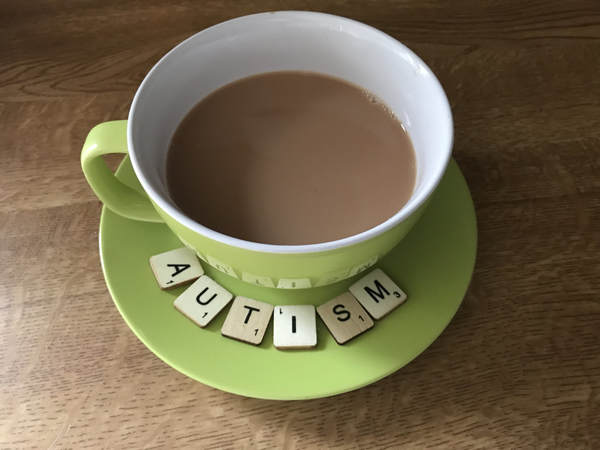

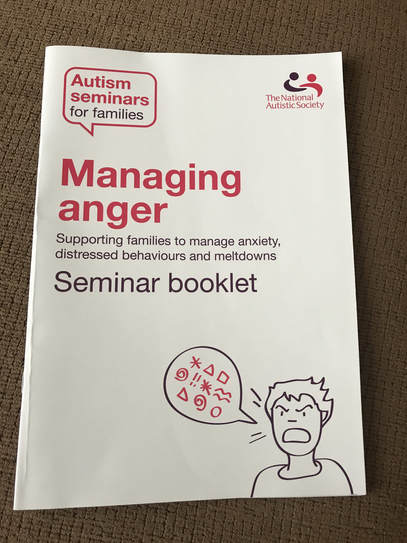
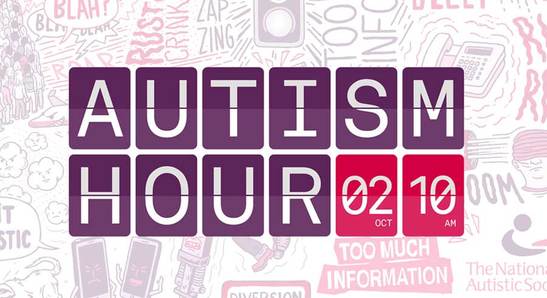
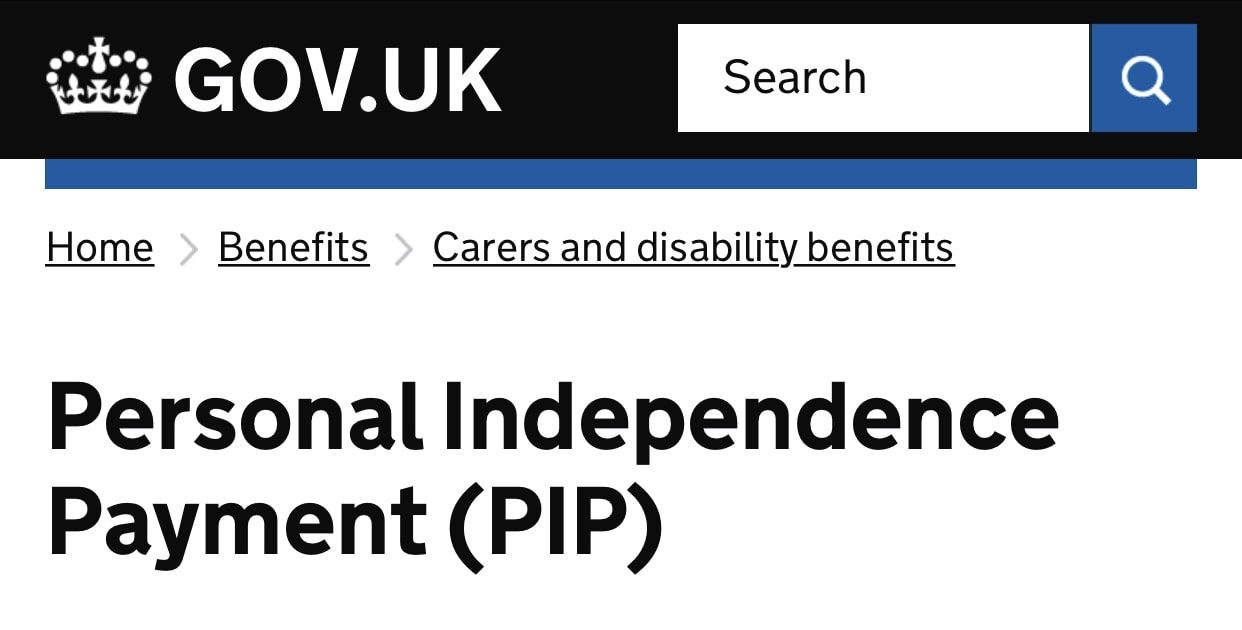
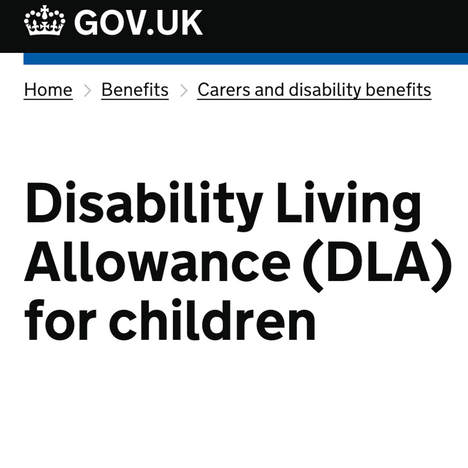
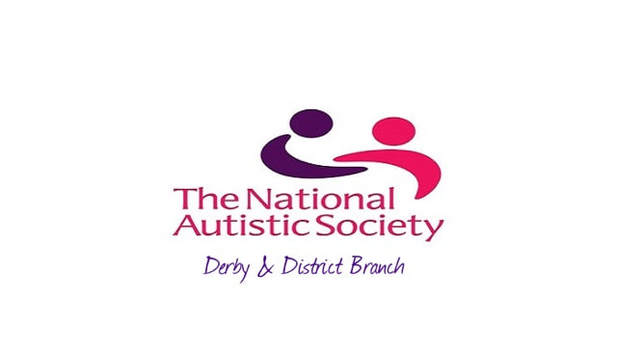
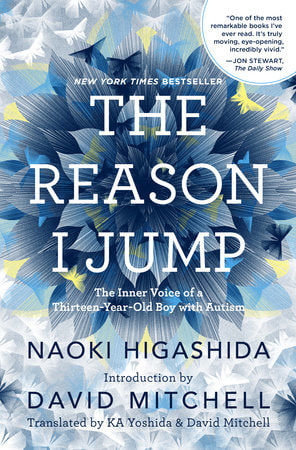


 RSS Feed
RSS Feed
